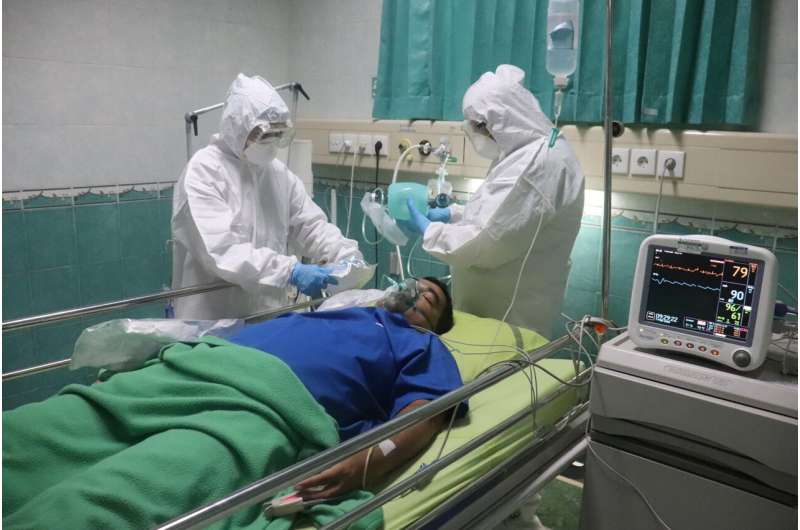
A warning has been issued that Australian health workers face legal risks if they make triage decisions during a disaster—and the COVID-19 pandemic has brought the problem sharply into focus.
James Cook University Associate Professor and Townsville University Hospital doctor Will Cairns is one of a group who have published an article in the Medical Journal of Australia today pointing out a lack of protocols or legislation in Australia to support triage decision-making if a disaster overwhelms the health system.
“Even before the onset of the COVID-19 pandemic this was something a number of us were advocating, but COVID-19 has made the need more pressing,” said Dr. Cairns.
He said the impact of the pandemic on the availability of healthcare has not been severe in Australia; however, health workers in the U.K. and U.S. were having to decide who would be put on a ventilator and even who would be denied entry to hospital.
“Many of them were making decisions unsupported by legislation and without guidelines or training; that’s distressing for patients, their relatives, and for the clinicians involved. If the situation was replicated in Australia it would mean clinicians could also face potential legal jeopardy,” said Dr. Cairns.
He said there are no public documents at the federal, state or territory levels in Australia to guide triage.
“When advice on triage is sought by direct questions to government, the general response has been to defer to unidentified higher authorities, obfuscate, or provide the informal response that protocols will be made available if the pandemic overwhelms healthcare services in Australia and triage becomes unavoidable,” said Dr. Cairns.
He said simply waiting until healthcare systems are overwhelmed before preparing for hard choices like triage is not good practice.
“Unsurprisingly, people do get upset during conversations about death. And governments fear people will blame them, rather than the circumstances.”
“But those of us who have engaged in community discussions about triage in disasters have found that, actually, people understand the challenges, value the opportunity to participate in discussions and are pleased that they can have input into how decisions will be made,” said Dr. Cairns.
He said it is in the interests of the community, government and clinicians that decision-making in a disaster can operate within a legal framework that reflects the necessary shift in priorities from the rights of each individual to the interests of the community of individuals.
Source: Read Full Article
